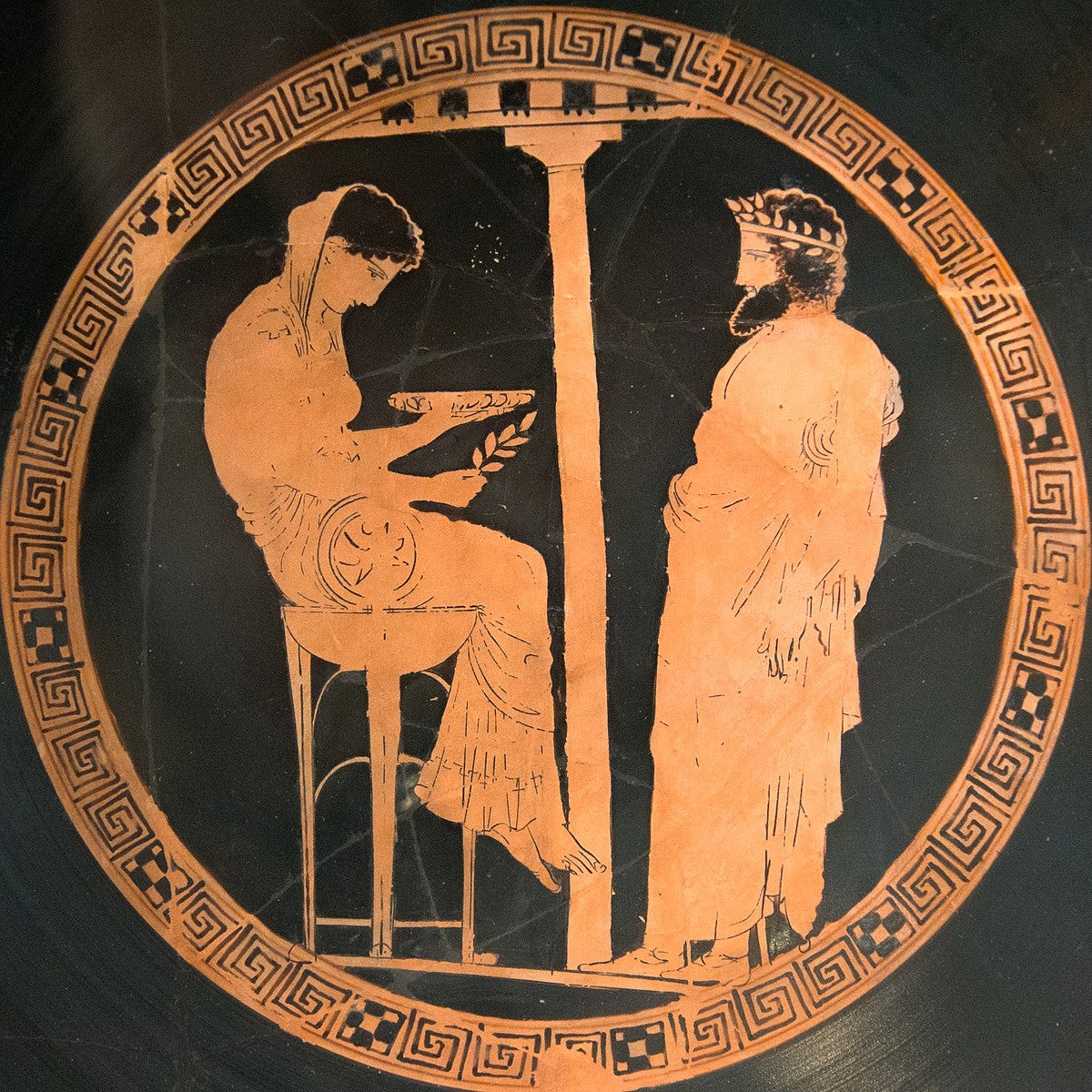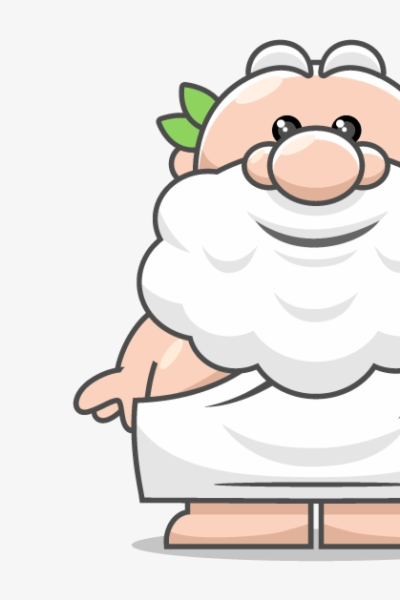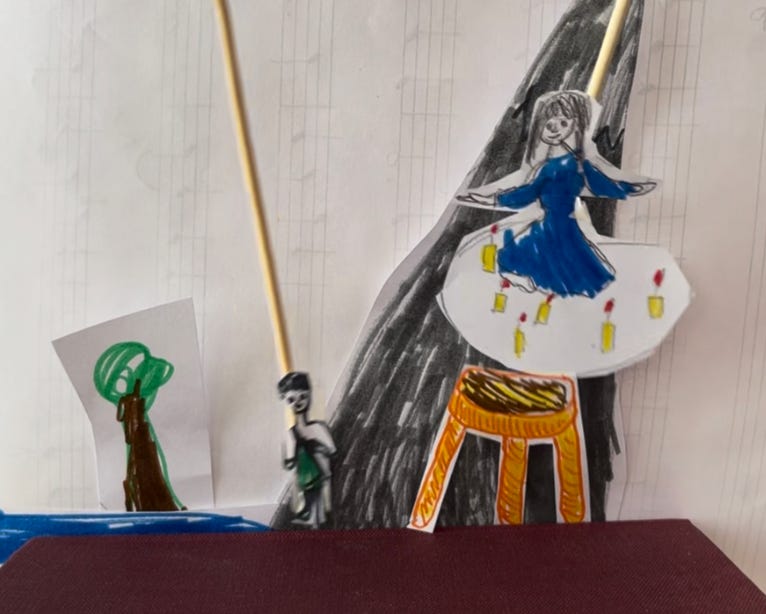Dear Classical Wisdom Kids reader,
Thank you so much for joining us for our inaugural issue of Classical Wisdom Kids! We are thrilled that you are here.
If you haven’t already, please take a moment to learn about our approach to education -and learning in general- here at Classical Wisdom Kids. It illustrates both our perspective on how children learn, as well as some ideas on this can be best accomplished. You can do so here:
Now, onto today’s story and lesson... that of Socrates, the Delphi of Oracle and the important lesson of knowing what you don’t know, below.
All the best,
Anya Leonard
P.S. I’ve made this first issue fully accessible to all, so that we can get feedback from our entire community. Future issues will have a free and members section. If you want to become a Member today, please choose one of our subscription plans here. If you can’t afford it, please email us here and we can help you out. You can also Donate a Subscription to those who can’t afford it, or Gift a Subscription to someone specifically here.
The Story of Socrates and the Delphi of Oracle
Socrates lived in Athens from 470–399 BC, almost 2,500 years ago, and spent his life in pursuit of the Truth. He was known throughout ancient Greece as a Philosopher, or lover of wisdom. Indeed, his reputation was so great that many thought he was the wisest person alive.
One day, when Socrates was around 40 years old, a friend of his went to the Oracle of Delphi*** to ask if there was anyone wiser than Socrates, and she replied that there was no one.
***The most powerful woman - perhaps even person - of the entire ancient world was the Oracle of Delphi. This was a special high priestess, called a Pythia, who every day would go to the Temple of Apollo at Delphi and predict the future. People from all over the ancient world would travel to the Oracle to hear her advice or prophecy... we’ll discuss her more in future newsletters.
When Socrates was told that he, of all men in Athens, was wisest, he was very skeptical. How was it that he could be wisest when Athens had so many famous politicians, artists and poets? Surely there must be some mistake. So Socrates decided he first would visit with the politicians of Athens. Surely if he were to talk with these famous men of government, he would find that they have great wisdom.
Socrates learned that the politicians believed themselves to be very wise and the people as well thought them to be knowledgeable of all good things. Yet, they were not wise men. Socrates tried to show this to them, to tell them that they were not so wise, but they refused him. The politicians became angry at Socrates and sent him away.
Socrates then spoke with the poets and craftsmen of Athens. They all seemed to have some knowledge of things, yet they too believed themselves very wise. They also became angry with Socrates when he told them that they really knew nothing. Socrates then thought about true wisdom and what it means to be wise:
Wisdom is humility, knowing that we know very little and importantly, that we should not claim to know what we do not know. Socrates says:
“I am wiser than that man. Neither of us probably knows anything worthwhile; but he thinks he does when he does not, and I do not and do not think I do”.
Socrates was thought to be the wisest man in Athens by the Oracle, because instead of thinking he had wisdom, he knew that it was better to instead continuously pursue new and truer knowledge.
DOWNLOAD OPTION FOR KIDS (includes word bank):
Discussion Points:
Important Note: While it’s popular to summarize Socrates’ point as “I know I know nothing”…. this can actually be a little misleading. Socrates is not saying he knows NOTHING. Socrates is a very intelligent man, he does know a lot of things... However, he does not claim to know something when he doesn’t know it. Only by realizing what we don’t know, can we truly open our minds to learning something new.
Let’s think about what we know versus what we don’t know.
Take an object, concept, anything you/your child is interested in. Make a list or discuss: what do you know about it? What do you not know about? Which list is longer?
Think about HOW we know what we know? Is everything something we learned? Or discovered? Are there some things we ‘just know’?
How can we learn more about something? What tools do we have? Both virtually, physically, or personally? What senses can we use? Who can we ask?
Activities
Socrates Puppet Show!
Materials:
Skewers/pencils/any long thin stick/popsicle sticks
Tape/glue
Scissors
Paper or print out
Re-enact the story of Socrates and the Oracle of Delphi! Either draw your own characters, or print out the attached doc, cut them out, color them, and tape the characters to the sticks. Extra points for creating the scenery of Delphi with the mountains and temples and/or ancient Athens. Film your show!
You can download the Socrates, Pythia, Politician Characters here:
Frida’s suggestion: Draw on Socrates a Sock! She choose on the head, but you can put them on his feet also. ;-)
Create a Dialogue
Socrates used to describe Athens as a large and sluggish horse and himself as the fly that bites and rouses it, as such he earned the nickname “Gadfly of Athens”. Can you imagine the scenario where Socrates questions the Politicians, Poets and Craftsmen. What do you think he said? How did they respond? Write it out or act it out.
Have an activity idea? Add your thoughts below:
Full Philosophy Section:
In this section, we will put extra original materials for the parents/guardians/adults or older children who want to get another level of the materials or understand the references.
Dunning–Kruger effect
There is a well known cognitive bias known as the Dunning–Kruger effect, where people think they know more than they actually know. Interestingly, we ALL are guilty of this in at least one field or aspect of our lives… but once we realize this bias, we can then actually learn. You can learn more about this effect here.
Read it yourself!
You can find the original text in Plato's Apology 21a-d. I highly recommend it, as you can get an excellent sense of Socrates’ humor as well.
Classical Wisdom Members can access the digital copy of this HERE.
Full citation of the Plutarch quote:
"The correct analogy for the mind is not a vessel that needs filling, but wood that needs igniting — no more — and then it motivates one towards originality and instills the desire for truth. Suppose someone were to go and ask his neighbors for fire and find a substantial blaze there, and just stay there continually warming himself: that is no different from someone who goes to someone else to get to some of his rationality, and fails to realize that he ought to ignite his own flame, his own intellect, but is happy to sit entranced by the lecture, and the words trigger only associative thinking and bring, as it were, only a flush to his cheeks and a glow to his limbs; but he has not dispelled or dispersed, in the warm light of philosophy, the internal dank gloom of his mind."
— Plutarch, On Listening to Lectures
Last, but not Least...
A quick plea dear reader... as this is our very first attempt at a new endeavor, we genuinely want to hear any and all feedback from you. What did you like? What should we add? And what could we have done better?
You know best... both for yourselves as parents, educators, guardians or caretakers of young ones, as well as the future minds you care so much about.
So feel free to email us your thoughts or comment below. We - like this project - are a work in progress, and we are thrilled to have the opportunity to grow.
Thank you again for joining us!
All the best,
Anya Leonard
Founder and Director
Classical Wisdom








Thanks for creating this. I can even use the lesson as a starter for my law students.
Congratulaciones! El primero texto me pareció mui bien y creo que los niños y los padres que muchas veces no conocen mitología griega y poco saben de Socrates , también se quedaran encantados .la parte práctica, lo lúdico será un refuerzo para los conocimientos transmitidos. Infelizmente no puedo pagar ahora ser suscriptor pago ahora ... (gañas tengo) ... Mucho suceso Anya , como todo lo que haces.Emilia